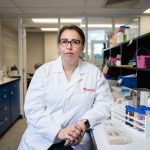Session : Food Waste and By-Products Valorization
Session Overview
Fighting climate change and protecting the environment are two of the greatest challenges of our time, and food waste is a major factor in both. Therefore, it is important to give priority to food losses and waste, which are observed at all stages of the food chain and concern all actors. Their reduction responds to a triple challenge: economic, social and environmental, and it is essential to ensure global food security, to mitigate climate change, to reduce greenhouse gas emissions and to use our natural resources more efficiently. Food waste valorization into value-added products, based on their bioactive compounds, represents an innovative approach to reduce food waste, to create new sources of income and to support the creation of a circular economy.
In this context, this session aims to strengthen the mobilization of all actors: scientists, professionals and also consumers, in the fight against food waste, to present recent advances and innovative results, and to propose revolutionary solutions, to support the transition towards more resilient, ecologically, socially and economically sustainable food systems. Finally, this symposium aims to present orientations and recommendations for future researches that aim to improve food waste management and to stimulate interest in their bioconversion into high added-value products, in a context of circular economy.
Room 204
Chair : Ismail Fliss – Université Laval
Co-Chair : Iness Jabri Karoui – Université de Carthage
Sponsors : Premier Tech and Virentia
1:30 PM - 2:10 PM
Lecture - in French
Reducing Food Waste Through the Circular Economy Perspective and the Fight Against Climate Change
Read the summary
The rapid growth of the world’s population and changes in lifestyle have led to a significant increase in food waste from various industrial, agricultural and domestic sources, the economic, social and environmental footprints of which, are too large to be ignored. Thus, the reduction of food losses and waste is a major challenge for the global food security, the efficient management of natural resources, the reduction of greenhouse gas emissions and the mitigation of climate change effects.
Several voluntary or regulatory initiatives are implemented and aim to empower all links in the food value chain to encourage them to reduce food losses by proposing sustainable solutions to make companies more resilient and innovative, and our food systems both healthy and respectful of the environment. Thus, revolutionary Food Tech start-ups have adopted several strategies, such as giving a second life to unsold food, rethinking the expiry of food, or using artificial intelligence.
One of the most effective solutions is to adopt the principles of circularity and zero waste at all levels of the food value chain, which must move from a waste-generating economy to a circular, lean, inclusive and clean, one, by adopting the cascading valorization strategy (bioeconomy) for example. Indeed, food waste or by-products contain important bioactive compounds which offer them a potential for conversion into high value-added products that can be used for the production of functional and nutraceuticals foods, bioplastics, biofertilizers…
In conclusion, current climate change mitigation initiatives are not sufficient to achieve the sustainable development or carbon neutrality goals. Furthermore, promoting the circular economy to reduce food waste would have many benefits for the environment, beyond the conservation of resources.
2:10 PM - 2:35 PM
Lecture - in French
A Sustainable Path from Developing Strategies for the Biomass Valorization to Enhancing Functionalities of their Corresponding Products: Cocoa Bean Shells and Chocolates
Read the summary
Transitioning to a sustainable food system that can deliver healthy diets is of high interest, and this can be achieved by developing innovative biotechnological approaches to generating highly added-value functional food ingredients and health-promoting products from under-used biomasses. Among these, cocoa bean shell (CBS), the outermost layer of the cocoa bean, is a heavily accumulated biomass of the chocolate industry. Efforts to valorize this biomass are needed.
The presentation will shed some lights on our developed valorisation path of CBS biomass driven by sustainable functional-driven strategies. In particular, the isolation and characterization of CBS oligo- and polysaccharides, their biotransformation into feruloylated compounds and their application as functional food ingredients in chocolate-based products will be discussed. Overall, CBS biomasses were great sources of carbohydrates, specifically dietary fibers (50.1- 61.4% w/w), protein (12.7-19.7% w/w), ash, and polyphenols, namely quercetin, epicatechin, and catechin. The compositional profile of CBS was found to be dependent on the cocoa bean variety and the degree of processing, namely fermentation, drying and roasting. The cell wall material of CBS was isolated and characterised of being primarily composed of pectic polysaccharides, which were isolated through alkaline extraction and characterised. Enzymatic hydrolysis and feruloylation enhanced the added value of generated CBS oligo- and polysaccharides. Taking advantage of the functional properties of the CBS-derived ingredients, a chocolate-based product with higher likeness responses was developed. An understanding of the correlation between the intensity and likeness attributes indicated that the enrichment with CBS ingredients contributed towards the development of a diverse and well-balanced chocolate-based formulation matrix.
2:35 PM - 3:00 PM
Lecture - in French
Eco-Efficient Solutions Allowing to Address Food Losses and Waste Issues
Read the summary
The modern agro-food industries face multiple challenges related to the growing population and a constantly increasing demand for food. To satisfy this demand, there is a need to increase food production. However, about one-third of produced food is lost or wasted throughout the food chain. As a result, food losses and waste would be the third greenhouse gas emitter if they were a country. Moreover, they significantly contribute to food insecurity. To tackle food losses and waste challenges, the multicriteria eco-efficient approaches are unavoidable in order to produce high-quality foods with a minimal impact on the environment. The current presentation will therefore be dedicated to some fundamentals of the eco-efficiency concept (value of the product in relation to its environmental impact) and will focus on a few examples of eco-efficient solutions allowing food losses and waste reduction.
3:00 PM - 3:30 PM
30-Minute Break
3:30 PM - 3:55 PM
Lecture - in French
The Application of Lean Six Sigma to Combat Food Waste
Read the summary
The application of Lean six sigma in the fight against food waste is a holistic approach aimed at optimizing processes and reducing losses throughout the food supply chain. This methodology combines the principles of lean, which targets the elimination of non-productive activities, with the statistical tools of six sigma, which focuses on the reduction of variation and defects. The work plan unfolds in several stages. First, a detailed process analysis is carried out to identify wasteful steps such as overproduction, waiting times, unnecessary movements, excessive inventory and quality defects. Then, measures are put in place to quantify food waste at each stage of the process. These metrics help assess the extent of waste and identify priority areas for improvement.
3:55 PM - 4:30 PM
Panel - in French
Moderators : Ismail Fliss and Iness Jabri Karoui

Manef Abderrabba
Carthage University, Tunisia

Stephane Desobry
ENSAIA - Université de Lorraine

Salwa Karboune
McGill University
EXPLORE THE COMPLETE PROGRAM
Explore the sessions encompassing a wide range of current topics!



